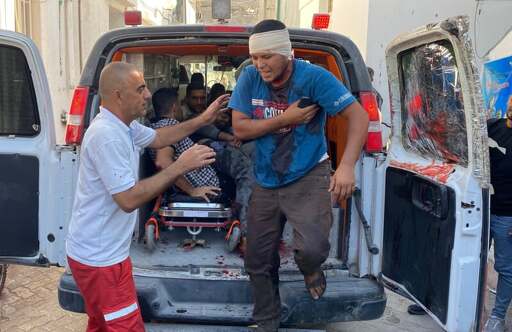He is obsessed with protecting Raed, who has suffered from malnutrition and whose immune system is fragile.
“He’s not allowed to leave the tent. One scrape could mean evacuation. And I will not live through that humiliation again. I just want him safe.”
Yousef himself now exhibits symptoms of post-traumatic stress syndrome, a common affliction for those exposed to extreme trauma, torture and mental torment, as he has been.
“When I see a bed, I see scattered limbs,” Yousef told The Electronic Intifada. “I hate the dark. I can’t sleep without noise. I see my wife’s face mutilated. I wake, gasping, clinging to my son.”
To make a little money, he has opened a small solar panel charging station in Jabaliya, where he and his family are determined to stay.
Yousef proved a lifeline for my father, as he and those like him have been for so many others.
His quick thinking and training saved my father from lethal danger. My father had passed out, and suffered shrapnel wounds, but it could have been much worse if Yousef had not pressed the damp gauze against his face and kept his airways open.
The bond between my father and Yousef remains untouched by the distance now dividing them.
Yousef has endured the unimaginable, yet he never lost his humanity nor the instinct to save others.


